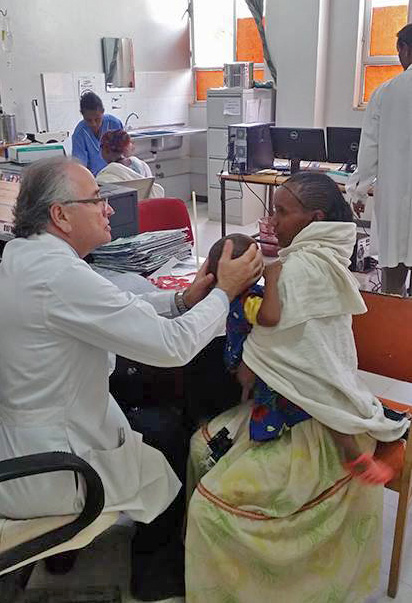
Today Ethiopia is totally focused on war while ignoring its women and children. Although one might argue that the Tigray is the worst affected the denial of need is affecting all of Ethiopia. The public resignation of Ethiopia’s Minister for Women, Children and Youth, Filsan Abdullah comes as no surprise. In her letter she admitted there was not enough government action to address the growing catastrophe such that morally she could not continue.
For the past seven years I was the Chief of Neurosurgery at Ayder Comprehensive Specialized Hospital of Mekelle University in Tigray which was a regional tertiary hospital serving almost 10 million people. Much of my clinical work and research focused on children including dealing with birth defects, mostly neural tube defects, which are epidemic in Ethiopia.
According to UNICEF children under age 5 make up 16% of the population. About 90% of the population lives a rural life with an average yearly income for the head of the family of $783 which is one of the lowest in the world. Almost half of girls marry by their 15th birthday often to older men. Only about 3 % of births are recorded. Less than 26% of pregnant women had any type of medical attention at the time of delivery. Now it is much worse.
Although in the past decade there has been dramatic improvement in training more public health and health care providers and reaching out to rural communities the expense of travel for poor farmers remains a barrier for families to get care for children. Often they came in very late in the stage of serious illness.
I have witnessed strong commitments to improving the status of women and children throughout Ethiopia by universities, health care providers, and public health agencies but too often for the leaders of the Ethiopian Federal government who are the real decision makers these things were not worth discussion. The have an abiding fear that open discussion of such issues will reflect deficiencies in the glory of new “wonderous” medemer.
Displacement, budget priorities of war over human needs, and the situation for women and children is only deteriorating worse then ever. Ethiopia has spent more on weapons $2.5 billion in the past year than it has spent for health care over the past several years. Credible unbiased reports indicate at least thousands and perhaps tens of thousands of women have suffered horrific acts of physical sexual violence and mutilation. Millions are in a state of famine while Ethiopian imposes a complete blockade of medicine, bottlenecks food aid to a trickle of what is needed, and has ejected many aid organizations falsely claiming they are aiding rebels. Young children are the most vulnerable to starvation and lack of health care.
In Ethiopia before the war started due to poor nutrition and lack of diversity in what diet there is available stunted growth in children which can lead to permanent physical and mental disability was rampant. Recent studies done before the war started have shown that 2 out of every 5 children five years or less are significantly stunted. Now it is worse.
Barely 60% of children finish elementary school and its even worse in isolated rural areas. Half of the population, women more than men, are functionally illiterate. Now it is getting worse.

